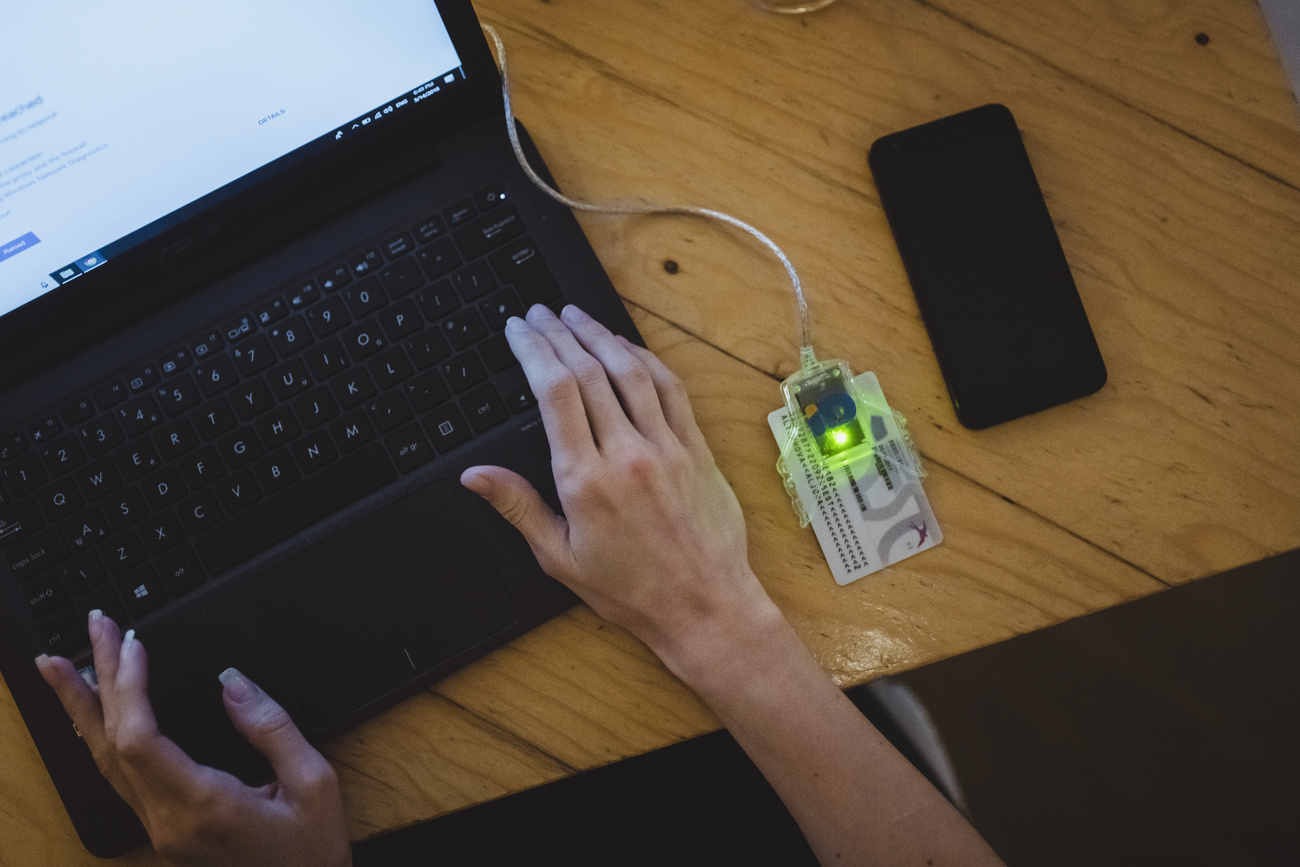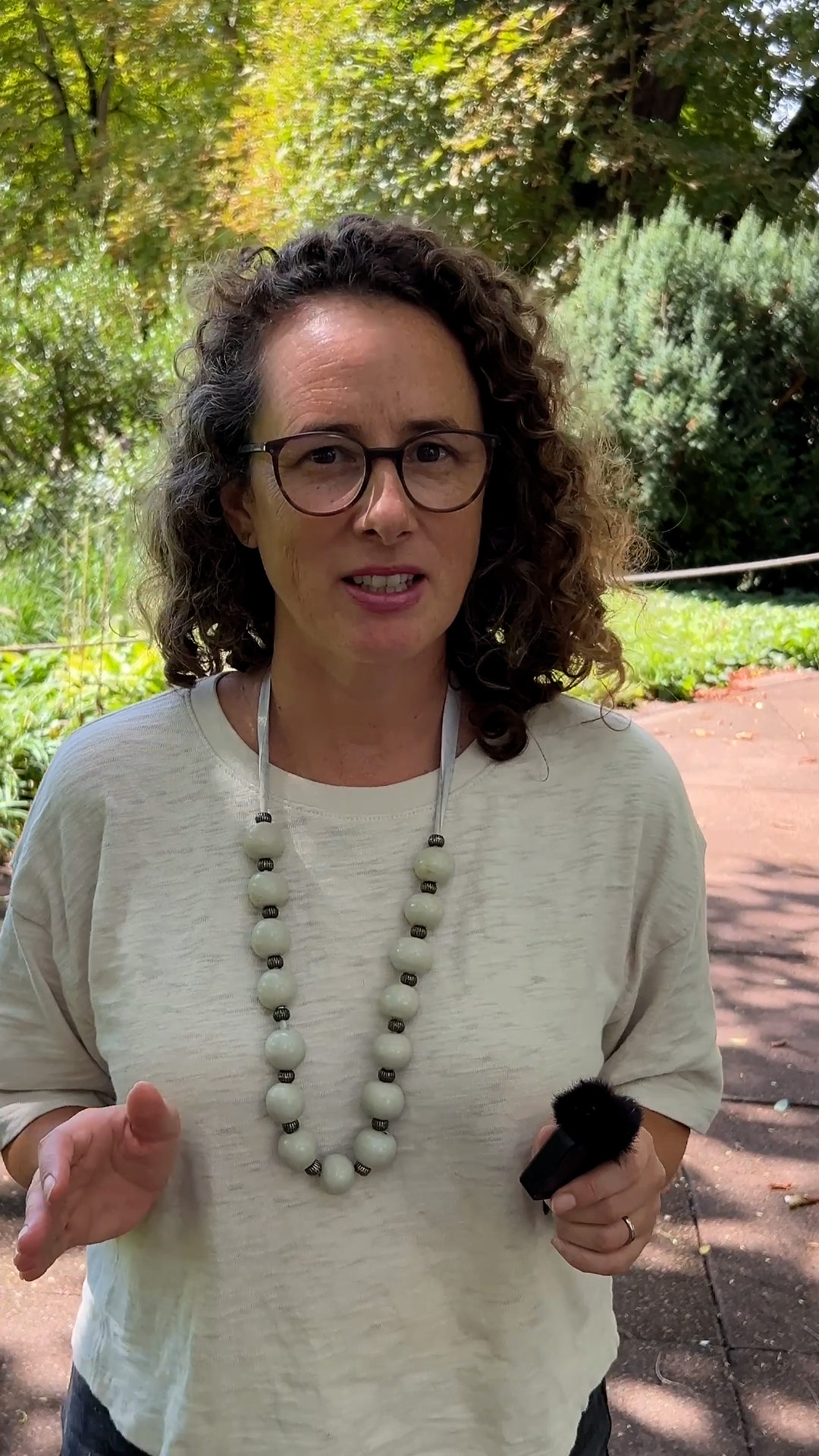
Women’s protection campaign tackles date rape

Health and safety experts in Bern are homing in on spiked drinks and date rape as part of this year’s nationwide “16 days against violence against women campaign”.
Various substances, often described as knock-out drugs or liquid ecstasy, can be mixed with a beverage or food to make a person lose control and even consciousness.
“I don’t think people are that well informed about liquid ecstasy, which is why we’re doing this campaign,” said Cornelia Englmann, a gynaecologist at Bern University’s gynaecology clinic at the Inselspital hospital.
Some of the most common substances used as “knock-out” drugs are Gamma-hydroxybutyrate (GHB), Gamma-butyrolactone (GBL) and butanediol (BD).
Colourless and nearly odourless, they come in the form of a powder or a liquid with a faint salty or soapy taste.
“GBL is especially problematic. It’s used industrially and is relatively easy to get hold of,” according to Gabriele Berger, head of special investigations with the canton Bern police.
Although private individuals are not allowed to buy it, companies involved in construction tend to purchase it in bulk, which means it can get into the wrong hands.
Berger told swissinfo.ch the federal authorities are looking into tighter regulations to help prevent this from happening.
Not only bars
In the meantime, it is imperative that women stay sharp when out socialising.
“Don’t accept drinks from strangers, and always keep an eye on your drink,” Berger advised. She warned that alcohol consumption, not to mention the use of medication or any other drug, could impair a woman’s ability to look out for herself.
It is also important to note that the danger is there regardless of where the party is.
“This can happen in bars as well as in private homes. We’ve seen both,” Berger said, suggesting that girlfriends should look out for each other: “If you suddenly feel dizzy or unwell, tell a friend or a staff member immediately. If you’re in a private place, get out fast.”
Unfortunately, there have been very few cases where the police were able to charge a perpetrator with the crime of spiking a drink. This is because the traces of liquid ecstasy disappear quickly.
According to the Federal Health Office, GHB remains in the blood for up to eight hours and in the urine for up to 12 hours. A short window given the typical blackout period experienced by victims.
Worst-case scenario
“Most victims come too late to prove whether it was involved,” Englmann told swissinfo.ch.
Yet regardless of whether knockout drugs may have been involved, rape victims are urged to seek help as quickly as possible – ideally within 72 hours to collect DNA evidence pointing to the perpetrator.
Some possible clues include saliva, semen and small scratches or bruises.
“The more time passes, the more likely it is that the traces will disappear either through showering, washing, brushing teeth, going to the bathroom. Injuries in the vaginal area or to the hymen can also heal very quickly,” Englmann said.
She pointed out that a woman could come to the clinic at any time of the day or night for treatment and to have DNA samples collected – even if she was not ready to press charges.
As for therapy, Englmann said it depended on the patient’s condition:
“Women usually come to us when they realise what might have happened. The trauma [of sexual abuse] can require long-term treatment.
“It’s also important to remember the danger of a sexually-transmitted illness or an unplanned pregnancy.”
“16 days against violence against women” runs from November 25 until December 10, which is Human Rights Day.
It is an international
campaign of activism taking place worldwide against gender violence.
Launched by the Women’s Global Leadership Institute in 1991, the year 2010 marks its third observance in Switzerland.
The International Day for the Elimination of Violence against Women on November 25 was first initiated to commemorate the murder of three sisters Patria, Minerva and Maria Mirabel in the Dominican Republic in 1960.
The Mirabel sisters, who were active in the underground resistance against dictator Rafael Leonidas Trujillo, were brutally murdered after being released from prison. Their courage has been taken to symbolise the worldwide struggle of women against injustice.

In compliance with the JTI standards
More: SWI swissinfo.ch certified by the Journalism Trust Initiative









































You can find an overview of ongoing debates with our journalists here . Please join us!
If you want to start a conversation about a topic raised in this article or want to report factual errors, email us at english@swissinfo.ch.